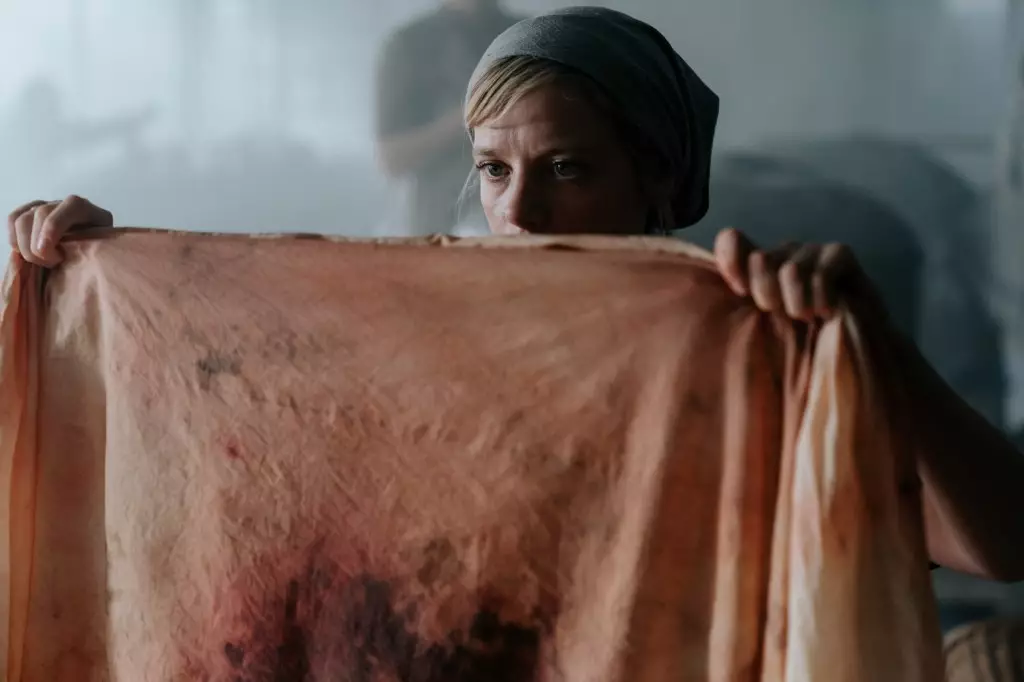The emergence of Global Constellation as a significant player in the international film market tells a compelling story of evolution and ambition within the European cinema landscape. This newly established sales arm, a result of the merger between Film Constellation and Global Screen, signifies not just a strategic business move but also the potential for enriched storytelling that transcends borders. Their inaugural acquisition, the WWII drama ‘Crux’ directed by Ulrike Tony Vahl, marks an ambitious step towards integrating diverse narratives amid the demands and complexities of modern filmmaking.
As the Cannes Film Festival’s Marché du Film unfolds, Global Constellation has seized a unique opportunity, acquiring both German distribution and international sales rights to ‘Crux.’ This marks a pivotal moment for the Vuelta Group, setting a precedent for future cross-border collaborations within its operations. The strategic synergy between Vuelta Germany and Global Constellation is indicative of a broader initiative to redefine how films are financed and distributed, all while maintaining a strong commitment to the authenticity and richness of the stories being told.
A Timeless Exploration of Morality and Survival
‘Crux’ is not merely a historical recounting of World War II; it probes deep into the human psyche during one of the most harrowing periods in modern history. The narrative unfolds in a seemingly tranquil German village nearing the war’s conclusion, only to be upended by the grim discovery of unidentified corpses along the river. The film presents a haunting exploration of moral decay, capturing how humanity navigates the treacherous waters of survival amid chaos.
Set against the backdrop of fear and hysteria, villagers are faced with a chilling dilemma: what does it mean to survive when their very humanity is questioned? The film adeptly outlines how the war’s horrors seep into the personal lives of ordinary individuals, leading to a collective confrontation with their own values and ethics. Vahl’s vision embodies a pertinent commentary on contemporary society, making ‘Crux’ not just an examination of the past but a reflection on the present.
A Talented Ensemble Bringing the Vision to Life
Starring Jella Haase, Frida-Lovisa Hamann, and Clemens Schick, the casting of ‘Crux’ demonstrates a thoughtful approach to showcasing emerging talents alongside established names in German cinema. The characters are likely to be multidimensional, representing the varied responses to fear and moral dilemmas that arise in times of crisis. It is a testament to the film’s potential that it is spearheaded by rising stars who have previously shown remarkable aptitude in their craft.
The film’s technical prowess cannot go unnoticed, with a veteran crew bringing their expertise to the project. Notably, cinematographer Piotr Sobociński Jr., a winner at the Camerimage festival, promises to deliver a visual experience that complements the film’s heavy themes. Meanwhile, the production and costume designers, alongside the composer, ensure that every element contributes to the film’s immersive quality.
A Bold Debut with Significant Implications
For Ulrike Vahl, ‘Crux’ represents her directorial debut in feature films following a series of acclaimed shorts. Her previous works, celebrated in prestigious film festivals, have established her as a visionary creator. The anticipation surrounding her first feature is palpable, and it underlines the film’s significance as a beacon of hope for elevated narratives in German cinema. Vahl’s lens captures not just the events of the past but echoes essential truths that resonate with today’s global audience.
As Global Constellation’s CEO Fabien Westerhoff astutely points out, Vahl’s storytelling is a visceral cinematic experience that promises to engage contemporary audiences. This is echoed by the enthusiasm of the producers who have united to bring this relevant story to fruition. Their collaborative efforts underscore the importance of community in filmmaking, especially concerning narratives that probe the depths of human experience.
The acquisition of ‘Crux’ signals a promising avenue for Vuelta Germany, suggesting a future filled with opportunities for innovative storytelling. The film emerges as a crucial piece in the fabric of modern cinema, urging viewers to confront difficult questions about morality and survival that remain painfully relevant. Through ‘Crux,’ audiences are invited not only to witness a tragic chapter of history but to reflect on its enduring impacts on our humanity today.

